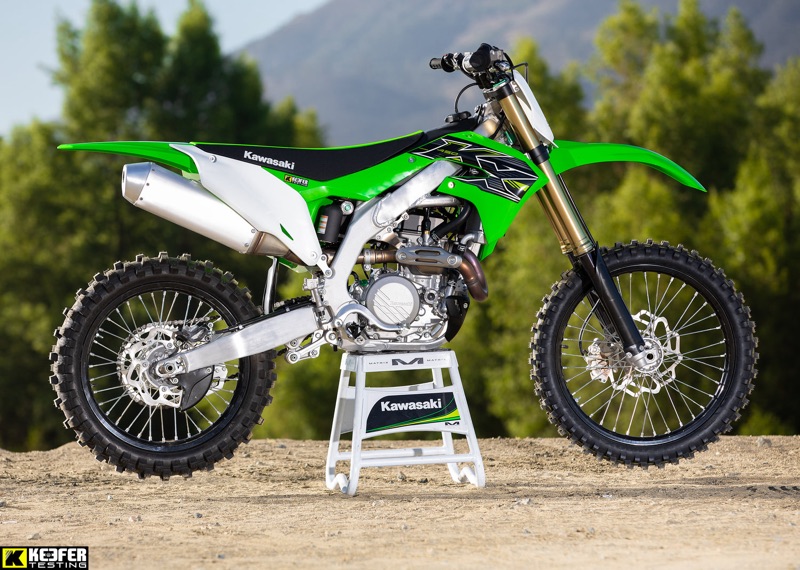Share This Article
I have been spending a lot of time on this 2019 Kawasaki KX450 lately and have been enjoying my days with the green machine! The Kawasaki engineers should be proud with how their production machine came out and the consumer/buyer should be as well. However, that doesn’t mean I will not experiment and try other settings to see if I can improve on the this 2019 Kawasaki KX450. I wanted to share with you some of the settings that I have came up with since the “First Impression” podcast. If you have a 2019 KX450 and want to “tinker”, give these a whirl and see if it helps you out on the track! As always feel free to email me your questions, concerns or maybe how you liked these settings! Hit me up at kris@keeferinctesting.com. Enjoy!
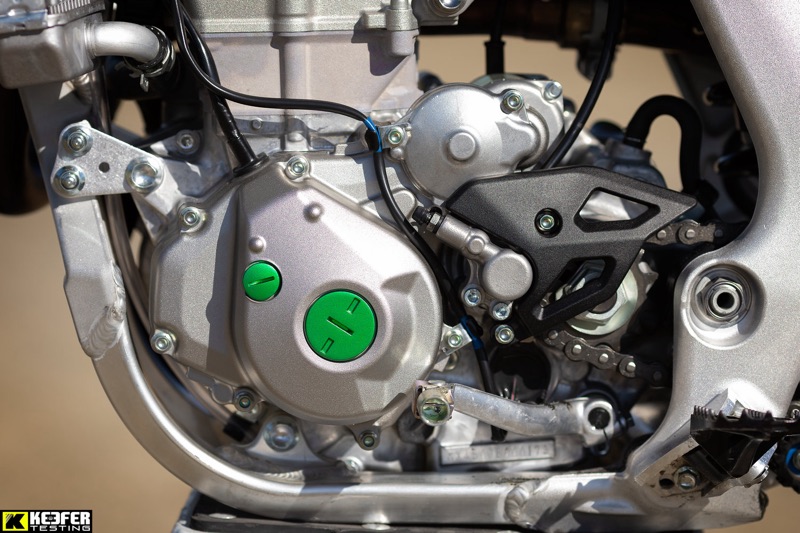
Engine:
Optional Keefer_1 map (Linear, More Control, Bottom End Pull With Increased Mid To Top End)
The engine on the 2019 KX450 in stock trim is exciting and makes the Kawasaki feel light. It has great RPM response, but does have a little dip from bottom to mid, so we created this map to help fill that dip in and make it pull slightly longer. You will notice a slightly more linear (more control at low RPM) pull down low without the jerky feeling through corners. With this map installed it helped settle the chassis down through long ruts. In the testing world we call this “cornering stability”. With this map installed it helped the 2019 KX450’s cornering stability, especially on intermediate terrain. You will need to plug the white coupler in and use the Kawasaki FI Calibration Tool to create this map. *SEE BELOW*
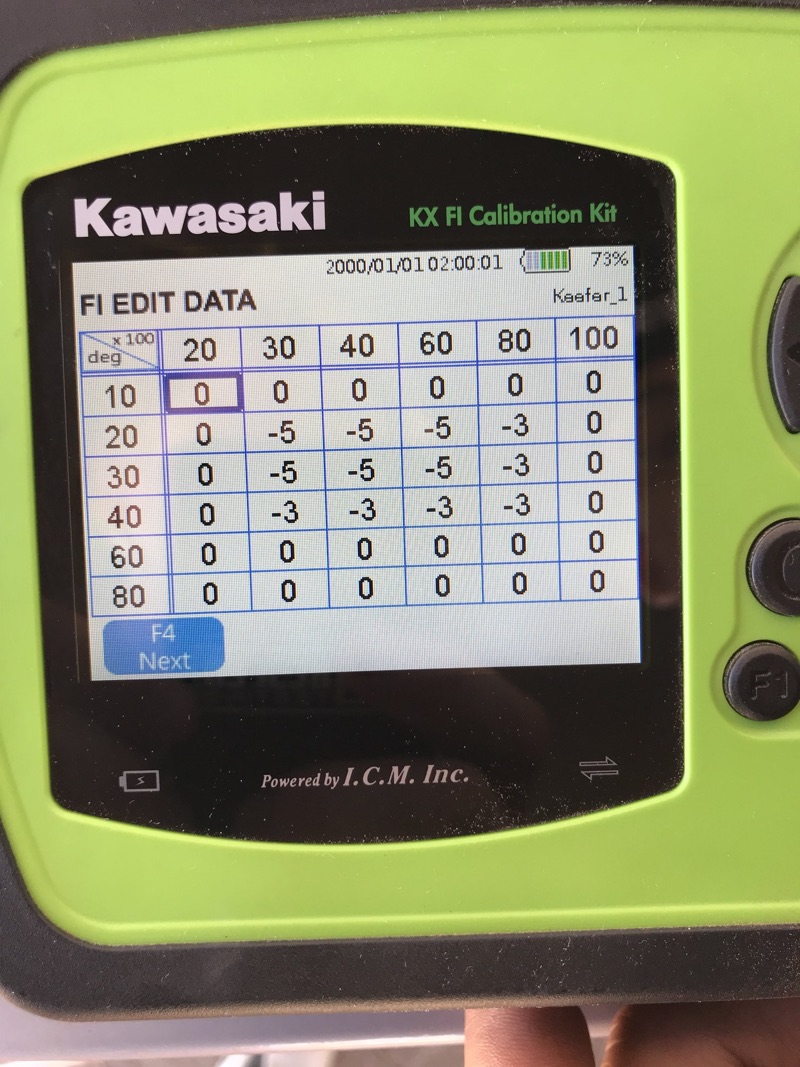
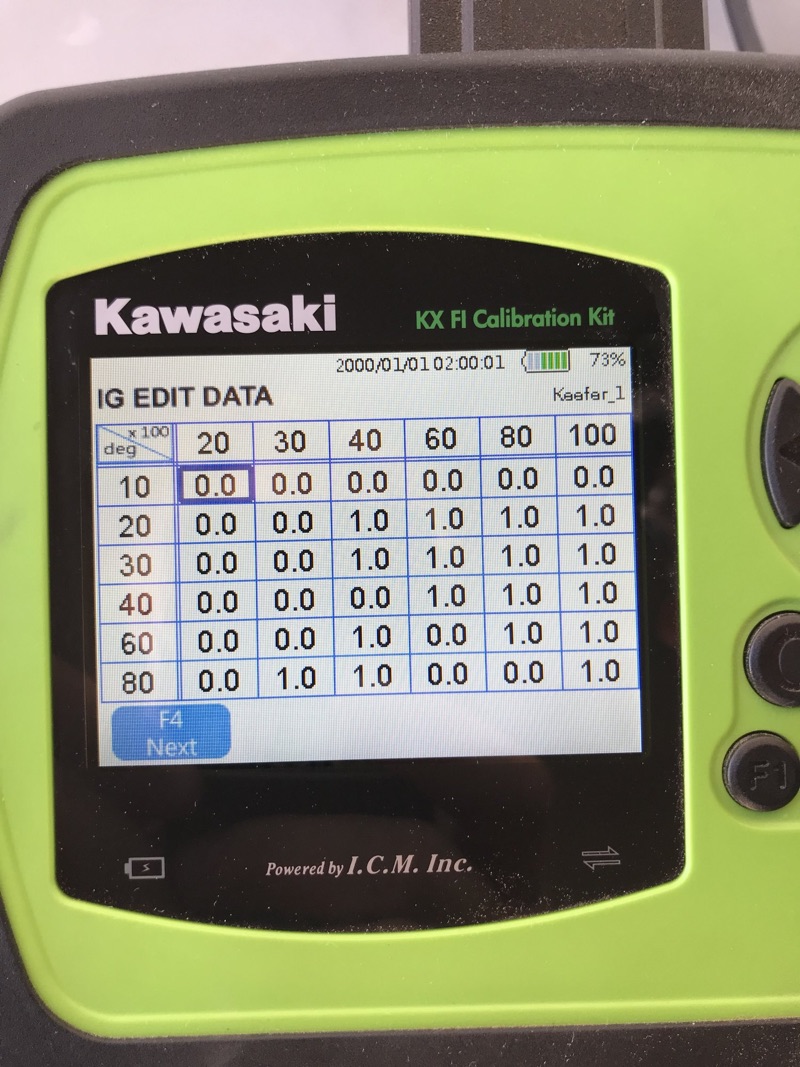
Optional Keefer_2 Map: (To Try With After Market Muffler System To Help De-Cel Popping)
If you plan on installing a slip on or full aftermarket muffler system on your fresh 2019 KX450, use this map below to help reduce de-cel pop and increase pulling power through mid-top end. Chances are that you might have some de-cel popping when you install an aftermarket muffler and are running the white or green coupler. Simply installing the black coupler will help this de-cel popping, but takes aways some of the Kawasaki’s RPM excitement. By using this map with the black coupler you get that RPM excitement back with a small amount of mid to top end pull increase. Try it if your aftermarket muffler gives you “The De-Cel Pops”! If it is NOT popping DO NOT worry about it and continue on with your life. This is for riders that experience de-cel pop only. *SEE BELOW*
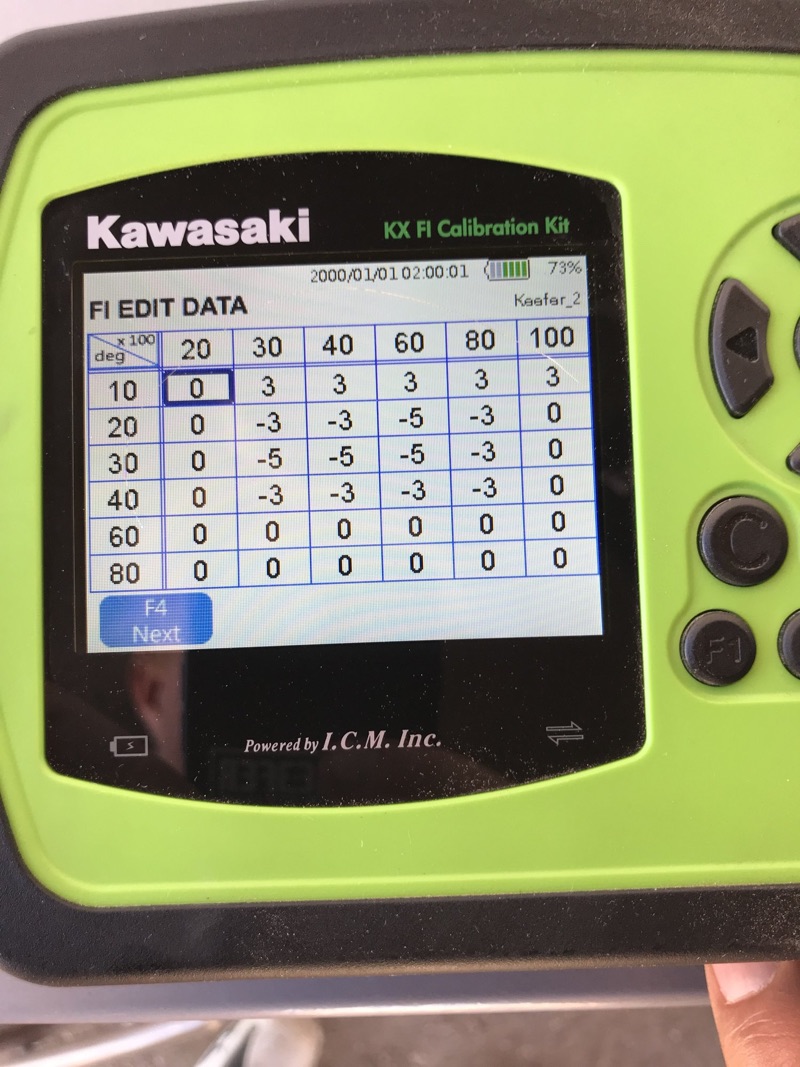
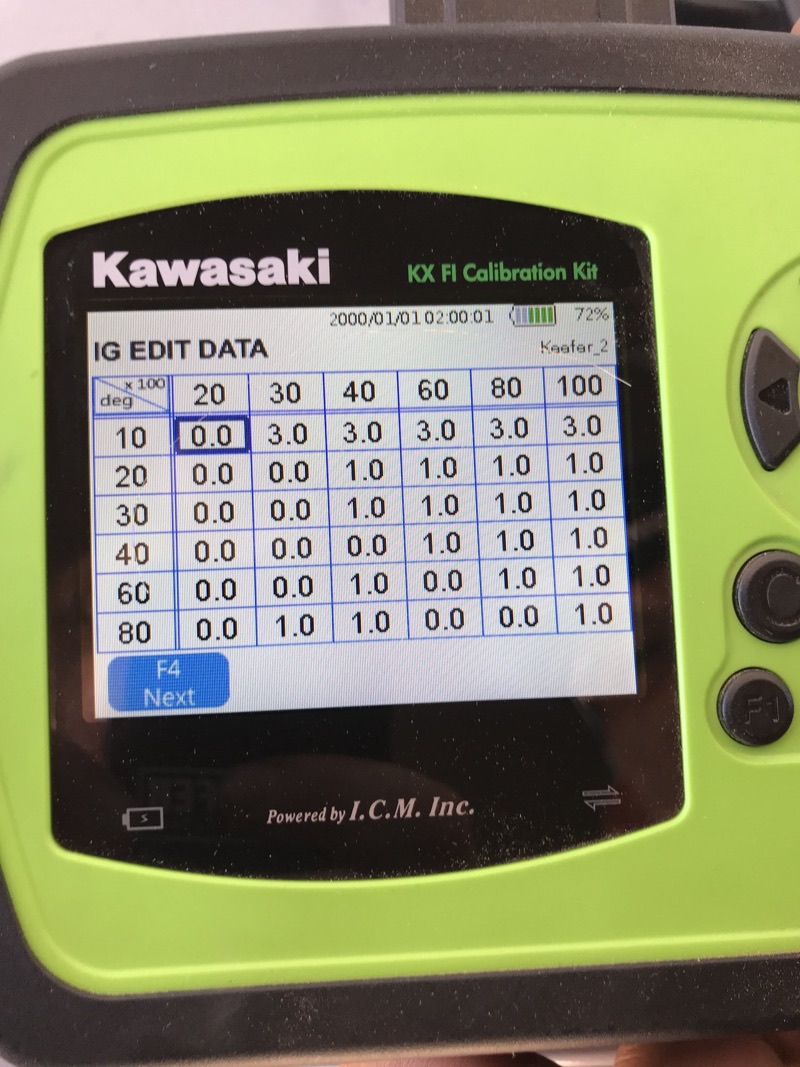
Suspension:
The 2019 KX450 can experience a little pitching on de-cel especially when the track is tilled up deep or sandy. I spent some time with the Kawasaki technicians and really worked on trying to keep the KX450 balanced (while keeping comfort) around the track. Below are two settings that I came up with that will help two different types of tracks/dirt. One is for very soft/heavy dirt and the other is geared towards more Southern California type tracks. Try these if you’re experiencing any type of pitching or if you just want to experiment when you’re riding. Note: “Pitching” is when the bike dives too hard towards the front end (fork is low) and makes the rear of the bike feel high when off-throttle. This causes instability coming into corners.
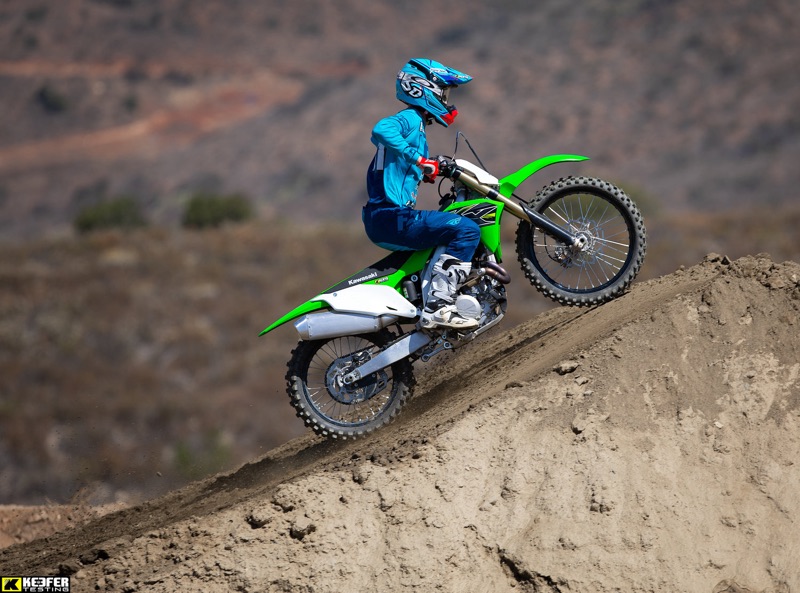
Soft Dirt Setting: (Note: “Plus” means stiffer or slower and “Minus” means softer or faster. When trying clicker ranges go one click at a time on fork as this Showa suspension is sensitive to clicks. When stiffening low speed compression on shock “4 clicks” equals “1 turn”)
Fork:
Spring Rate 0.51 Spring (0.50 is stock) *If B level rider and over 200 pounds 0.52 springs is also a great option*
Oil Level: Standard
Compression Range: Stock to Plus three
Rebound Range: Stock To Plus One
Shock:
Spring Rate: Standard
Low Speed Compression Range: Plus Eight Clicks (Equals Two Turns)
High Speed Compression Range: Stock To Minus 1/4 Turn
Rebound Range: Stock To Plus Two
Southern California Dirt Setting: (Note: “Plus” means stiffer or slower and “Minus” means softer or faster. When trying clicker ranges go one click at a time on fork as this Showa fork is sensitive to clicks. When stiffening low speed compression on shock “4 clicks” equals “1 turn”)
Fork:
Spring Rate: Stock
Oil Level: Standard
Compression Range: Plus Three To Plus Four
Rebound Range: Minus Two (Important to speed up your rebound when going stiffer on this fork. If you don’t speed up rebound, when going stiffer, the fork stays too low in stroke and almost feels sticky on de-cel.)
Shock:
Spring Rate: Stock
Low Speed Compression Range: Plus Eight Clicks (Equals Two Turns)
High Speed Compression Range: Stock To Minus 1/4 Turn
Rebound Range: Stock To Plus Two
